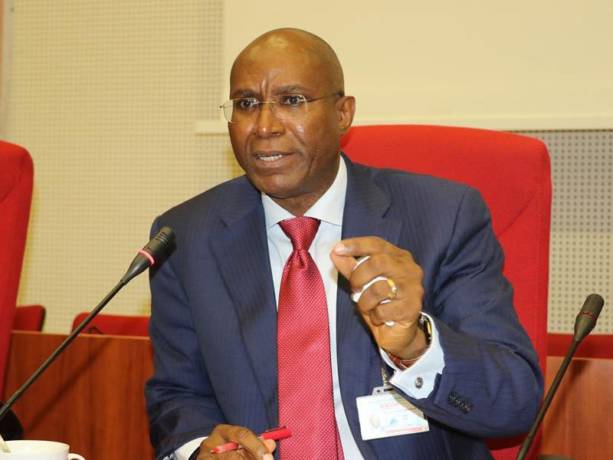Transportation Secretary of the Federal Capital Territory (FCT), Kayode Opeifa, has expressed optimism that most of the transport gridlock in Abuja would soon disappear with the commissioning next Thursday by President Muhammadu Buhari, of the Abuja light rail system.
Speaking during a chance encounter with newsmen Monday, Opeifa, a former Commissioner for Transport in Lagos State, allayed fears that the transport situation in Abuja could relapse to the chaos that it has become at the former federal capital.
According to him, “The Abuja rail system is as advanced as any in the developed world and it is designed to provide speed and comfort to the passengers within the FCT and served as a delight to tourists.”
He gave kudos to the Buhari administration “for not abandoning the rail project he inherited from the previous administration which was only 56 percent completed and was on the verge of being turned into a white elephant project.”
Opeifa disclosed that the project was financed through counterpart funding with the China Export-Import (Exim) Bank on the basis of 60 percent from the Chinese and 40 percent from the FCT administration adding that the total contract is $823.5 million from inception.
With a total kilometer length at 42.5 made up of two lines, Opeifa said the rail tracks link the Central Business District (CBD) of the federal capital with the Nnamdi Azikiwe International Airport on a 28-kilometer stretch and another 18-kilometer stretch connecting Kubwa with the already existing Kaduna-Abuja rail at Idu Station on the outskirt of the metropolis.
He said the project that took more than a decade to complete, having been flagged-off by the Olusegun Obasanjo administration in 2007, “will link 13 communities with 12 stations at the Abuja Metro, Stadium, Kukwaba 1 and 2, Wupa, Idu, Bassanjiwa, Airport, Gwagwa Dei-Dei, Kagini and Gbazango. All of these have been completed.”
Opeifa also added that the rail system has modern facilities that include ultra modern edifices, modern shopping centres and eateries with the prospect of springing up further economic activities along the tracks and overall positive impact on the growth of the FCT.
According to him, “other key components of the project include the construction of a permanent way, subgrade cutting and filling, stations and buildings; structures like railway bridge, flyover bridges on roads; frame bridges including communication and signalling; power and water supply; provision of locomotives and rolling stock depot.”
Source: today.ng





